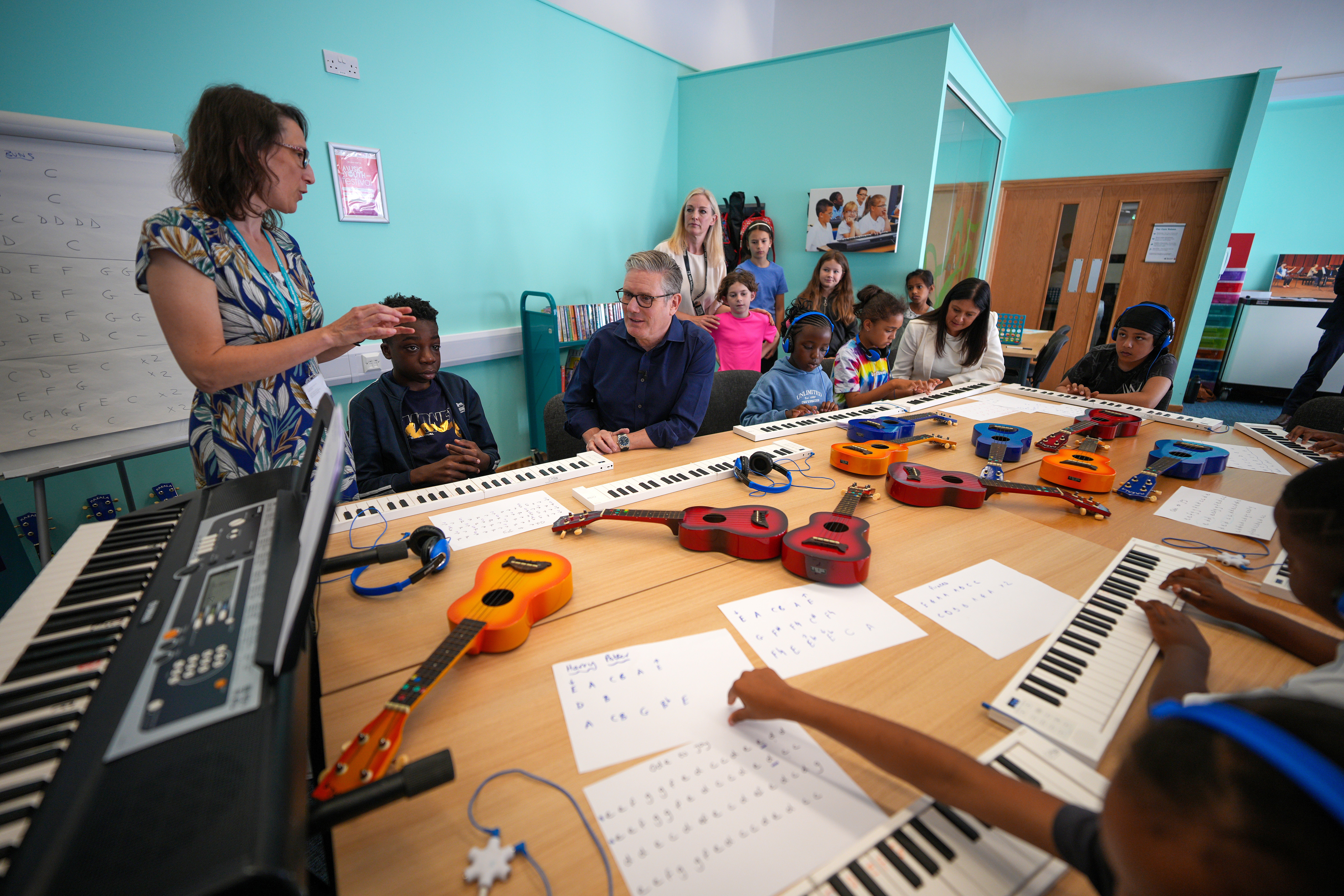Pupils in London are outperforming those in the rest of the country, but Labour has no credible plan to fix the problem, a leading think tank has warned.
A report by the Institute for Government (IfG) warns that educational inequalities in England have “grown wider and more pronounced” across the country and among various demographic groups since the Covid pandemic.
Despite the government’s commitment to closing the disadvantage gap, the think tank warned that ministers had “not yet articulated a clear vision or plan for delivering this goal”.

The announcement comes as tens of thousands of pupils across England, Wales and Northern Ireland are due to receive their GCSE results on Thursday.
The average Key Stage 4 attainment rate, meaning pupils who pass English and Maths GCSE, is at 65 per cent across England. But the regional imbalance is huge, with rates as low as 40 per cent in the Merseyside village of Knowsley, and reaching 83 per cent in the affluent west London borough of Richmond upon Thames.
At Key Stage 2, the end of primary school, London’s attainment of 69 per cent was eight percentage points above the national average of 61 per cent last year. Between 2019 and 2024, KS2 attainment in England fell from 65 per cent to 61 per cent, driven by steep drops in maths and writing results.
Performance fell across all regions, although to a lesser extent in London – a fall of 2 points. As a result, the gap in KS2 attainment between London and the rest of the country has grown by half – from 6 to 9 points – since the pandemic. The data also shows that the disparity in GCSE attainment between disadvantaged and non-disadvantaged students has widened in most local authorities since Covid, with little progress made in closing the gap between 2019 and 2024.
The government has previously promised to “focus on closing gaps in outcomes between children eligible for free school meals and their more advantaged peers”, as well as tackling barriers to attainment for children with special educational needs and disabilities.
Earlier this year, the government announced that an extra half a million children would benefit from a free school meal, which they said would lift 100,000 pupils out of poverty and put an extra £500 in parents’ pockets. But Caroline Voaden, the Liberal Democrat MP for South Devon who sits on the Commons education select committee, urged the government to go further by addressing funding disparities across the country.
She told The Independent: “A Camden school is paid nearly three times as much as a school in Devon for every child with additional needs on their roll. So they can afford more teaching assistants, more specialist help, better facilities, more extracurricular activities, better and healthier food, music, arts and sport specialists. Is it any wonder that children outside of London are missing out?”
Ms Voaden said she had raised the issue with the schools minister and had “never received an adequate answer”. “Frankly, it’s a scandal that children across the country are being let down by a focus of consecutive governments on London and it has to change. Our children deserve better.”
James Toop, head of the education charity Teach First, warned that the pandemic had “set back a generation, with disadvantaged young people paying the highest price. Worryingly, progress since then has been limited, with social and regional inequalities continuing to grow. The government must do all it can to deliver on its mission, starting by attracting and incentivising the brightest and best to teach where they’re needed most.”
The IfG report suggests the disparity comes as a result of the capital’s distinctive demographic mix as well as London’s draw as a place to work, meaning it’s more likely to attract better-qualified staff. The think tank has said tackling high absence rates, particularly among disadvantaged pupils, “will be key” to narrowing educational inequalities.
Recent Department for Education figures show that the number of children in England classed as “severely absent”, which means they missed at least 50 per cent of possible school sessions, rose to nearly 150,000 in autumn 2024.
Amber Dellar, an IfG researcher and report author, said: “The pandemic has undone much of the last decade’s progress in tackling educational inequalities, leaving some areas and groups of children far behind. The government’s opportunity mission is a good starting point for narrowing the gaps but it lacks a clear vision or plan for delivering that goal in schools. Any serious plan must focus on helping schools share what works in supporting disadvantaged pupils and reducing their high rates of absence.”
The report also showed that areas of the country where disadvantaged pupils perform worse are more likely to have large populations of poor white children. Less than a fifth (18.6 per cent) of white British pupils eligible for free school meals achieved at least a grade 5 – considered a “strong pass” – in English and maths GCSEs in 2023-24, compared to 45.9 per cent of all state school pupils in England.
A Department for Education spokesperson said: “We are driving high and rising standards for every child through the expert-led Curriculum and Assessment Review, new Rise [Regional Improvement for Standards and Excellence] teams and strengthened school accountability. This comes alongside work to tackle disadvantage, including expanding free school meals, rolling out free breakfast clubs and revitalising family services in every local authority. But we know there is more to do, which is why we will bring about the reforms needed through our schools white paper later this year to create an education system where every child can thrive, regardless of their background.”



